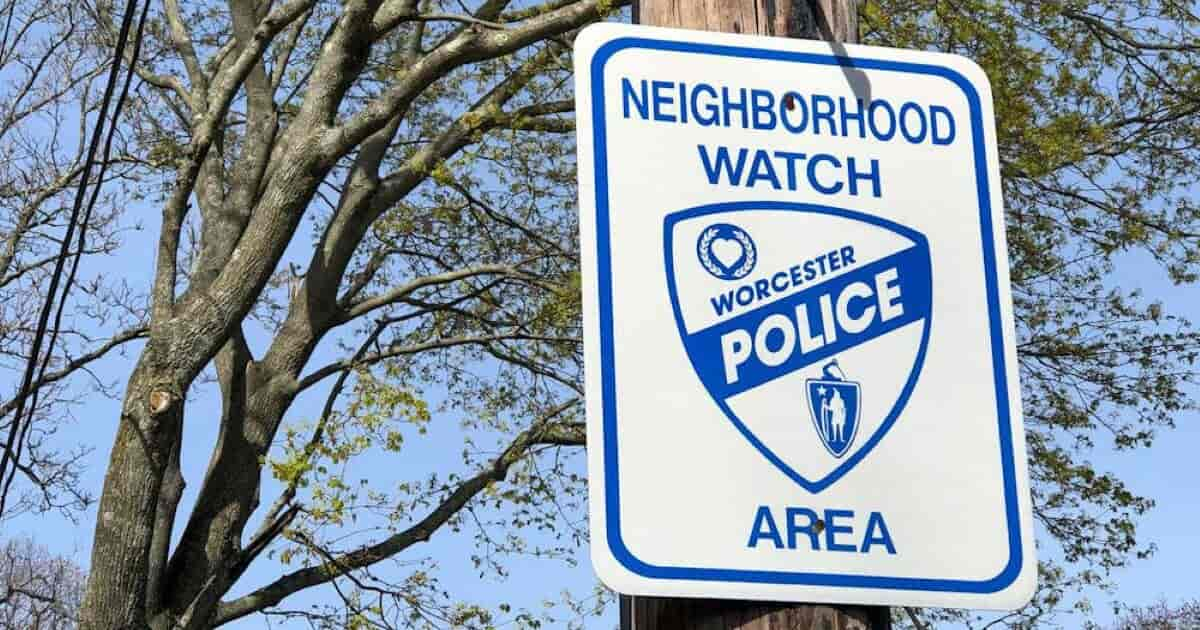In today’s daily 5 Things You Need to Know feature, ThisWeekinWorcester.com explores five important items and stories that Worcester and Central Massachusetts residents should keep a close eye on.
These five things can cover a whole range of subjects and issues that we feel are pertinent to understanding what’s going on in the city and the cities and towns surrounding Worcester.
In today’s edition — Thursday, Jan. 9 — the Girl Scouts are coming, with cookies!, the “Revolution is in the air” series is all about the Blackstone Valley, the state’s clean energy policies continue to grow, WPI researchers are coming up with a new sign language technology and the Worcester Housing Authority got a big grant.
Blackstone River Valley National Historical Park Launches “Revolution is in the Air”
Blackstone River Valley National Historical Park has a nifty new lecture series this winter that discusses the Blackstone Valley’s role as an incubator for revolutionary thought and action. They happen on Saturdays, Jan. 18, Feb. 22 and March 28. Each lecture explores a significant, historic event that reshaped the Valley’s political and social fabric.
The first lecture on Jan. 18 discusses the Dorr Rebellion and its importance in Rhode Island history. Rhode Island scholar and co-creator of Providence College’s Dorr Rebellion Project, Russell DeSimone, discusses what was arguably the most significant political and constitutional event in Rhode Island. Later lectures discuss the African-American community living in the Snow Town neighborhood and the first National Woman’s Rights Convention held in Worcester, MA, in 1850.
“This will be the first year that the Park holds a lecture series such as this,” Ranger Mark Mello explains. “We hope this lecture series will provoke the public to think about what it means to live an ever-evolving democracy here in the United States, and how the Blackstone Valley shaped change in this nation. We think this is a great way to anticipate and begin the celebration of this country’s 250th anniversary of independence coming in 2026.”
All lectures begin at 2 PM.
Get the full series here.
The Cookies are Coming, the Cookies are Coming
Bring on the Do-si-dos and Thin Mints and get ready for your friends with kids to be asking you to buy a couple of boxes. The Girl Scouts of Central & Western Massachusetts (GSCWM) and Girl Scouts of the USA (GSUSA) launched the 2020 Girl Scout Cookie™ season this week, a time when Girl Scouts across the United States become entrepreneurs as they earn money to power their own leadership opportunities and adventures.
This season, there are two sweet new ways to celebrate young female leaders: refreshed packaging reflecting the amazing experiences cookie earnings make possible for girls, and a new lemon cookie available in select areas.
The Girl Scout Cookie Program teaches girls about entrepreneurship as they have fun learning essential skills such as money management, public speaking, and decision making, which set them up for a lifetime of success.
Girl Scout’s refreshed cookie packaging (with the same great taste!) continues to emphasize what the cookie program is all about, and the updated images feature current Girl Scouts taking part in a diverse range of experiences available to members.
The new Girl Scout Cookie is Lemon-Ups, a crispy lemon cookie baked with messages inspired by Girl Scout entrepreneurs. “I am a go-getter” and “I am an innovator” are among the eight phrases that bring the experience of Girl Scouting to life. The new cookie joins past favorites including Thin Mints, Samoas, and Trefoils, Do-si-dos, Tagalongs, S’mores and the gluten-free Toffee-tastic.
Girl Scout cookie booth sales in central and western Massachusetts kick off Jan. 17 and continue through March 8. Go here to find your closest cookie seller, or use the official Girl Scout Cookie Finder app, free on iOS and Android devices.
The State’s Clean Energy Industry Continues to Grow
It’s been growing for nine years now. According to the Massachusetts Clean Energy Center (MassCEC), the state’s clean energy sector has continued its trend of upward growth, adding 1,069 workers to the clean energy workforce between 2018 and 2019. The figures, released as part of MassCEC’s 2019 Massachusetts Clean Energy Industry Report, found that the industry now employs more than 111,836 workers in the Commonwealth, an increase of 86 percent since 2010.
“Massachusetts continues to lead the nation in building a dynamic clean energy industry, and we are pleased to see continued growth in jobs across the industry as well as in emerging markets like energy storage,” said Governor Charlie Baker. “Ensuring a resilient, clean and affordable energy portfolio is critical to our administration’s efforts to mitigate the impacts of climate change while delivering cost savings and environmental benefits to cities and towns across the Commonwealth.”
According to the state’s release, the clean energy industry saw robust growth in its contribution to Massachusetts’ Gross State Product (GSP), increasing five percent over the last year to contribute nearly $14 billion to the statewide economy, accounting for roughly 2.5 percent of the GSP.
The report found that the clean energy industry employs residents in every region of Massachusetts and makes up about 3.1 percent of the Massachusetts workforce. The Southeast region saw the most job growth, with a 1.5 percent increase from 2018 to 2019, followed by the Northeast region, which recorded a 1.1 percent increase. The Northeast region, which includes Boston, makes up about 48 percent of total clean energy employment, with over 53,000 workers. Western Massachusetts saw a 3.2 percent increase in clean energy businesses and 0.6 percent increase in jobs, followed by Central Massachusetts which saw 3 percent growth in total clean energy businesses, and a 0.1 percent increase in jobs.
WPI to Help Develop Novel Sign Language Technology
A Worcester Polytechnic Institute researcher got a whopping $1 million National Science Foundation (NSF) grant that could lead to significant breakthroughs in technology platforms for the ASL-signing Deaf Community. Erin Solovey, assistant professor of computer science, investigates the feasibility and effectiveness of computer interfaces that will allow deaf people to navigate, search and interact with technology completely in American Sign Language.
Members of the deaf community whose first or primary language is American Sign Language (ASL) currently engage with interactive computer tools presented exclusively in English, including those designed expressly for ASL content and educational materials. The lack of ASL-based navigation is in part due to the fact that the signed languages of the world have unique requirements that do not align with existing text-based user interface design practices.
That means that developing this Sign-Language First (SL1) technology would be promising for ASL-signing users and others who are interested in signed language content. SL1 design has the potential to level the playing field for deaf students seeking to access academic, linguistic, and other informational content online.
“This project takes a human-centered computing approach to build a foundation that advances understanding of how deaf individuals could work and learn in environments that are designed with their needs and preferences at the forefront,” said Solovey.
More Than $3.5 Million Handed to Public Housing Agencies, Including Worcester
Several Massachusetts senators and representatives, including Elizabeth Warren, Joseph Kennedy and Congressman Jim McGovern, announced this week that the U.S. Department of Housing and Urban Development (HUD) has awarded more $3.5 million in federal grants to public housing agencies (PHAs) in Massachusetts.
The funding, which was awarded through HUD’s Family Self-Sufficiency (FSS) Program, goes to caseworkers who help residents of public and voucher-assisted housing further their education, gain skills, and build savings. Among dozens of town and city’s housing authorities, the Commonwealth of Massachusetts was given $785,547 and the Worcester Housing Authority got a $360,000 piece of the pie.
“Decades of stagnant wages and rising housing costs have made it next to impossible for many families to pay the bills and put food on the table,” said McGovern. “These self-sufficiency grants to local housing authorities will help uplift folks in Leominster, Worcester and Greenfield who just need a hand up to get ahead. This is a smart and targeted investment that will help participants gain the skills they need to increase their earning power and achieve long-term financial independence.”
Follow us on The016.com, the social network for Worcester and you!









